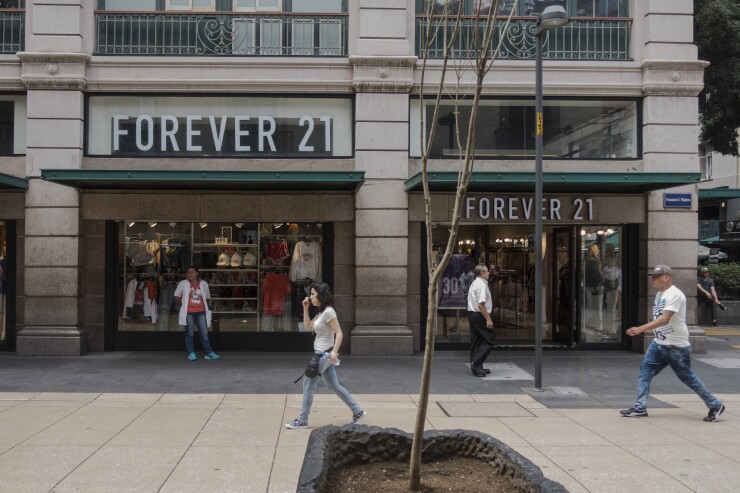Want unlimited access to top ideas and insights?
The information you need to start your day, from PaymentsSource and around the Web:
Breach at Forever 21: As 2017 came to a close, customers of Forever 21 got some unwelcome news: A data breach had compromised their credit card numbers, expiration dates, verification codes and some names,

Crypto gets dangerous: A cryptocurrency expert in Ukraine has been kidnapped for a ransom demand of $1 million in bitcoin,
An API for the IRS: Credit scoring could be improved dramatically by gaining access to income data from the IRS, but right now such information isn't readily available due to technological constraints,
Good day to be outside: There's another
From the Web
Fortune | Sat Dec 30, 2017 - BitMEX, a Seychelles Islands-based cryptocurrency trading platform, has sold all of the Bitcoin Cash (BCH) cryptocurrency granted to its customers during the Bitcoin clone’s creation in August, and says it will credit those users with an equivalent value of Bitcoin (BTC). BitMEX didn’t disclose the volume of the selloff, but BitMEX accounts for the majority of Bitcoin-to-dollar trading globally, implying it had sizable BCH holdings. There’s no sign that the move had a direct market impact, though. Both Bitcoin and Bitcoin Cash continued to trend down following the announcement of the selloff’s completion, with regulatory signals from South Korea possibly playing a role.
TechCrunch | Fri Dec 29, 2017 - Earlier this year the “fintechs” hit a massive milestone, one that very few people noticed but which must certainly be keeping senior execs at banks, credit card companies and other institutions up at night. In June of 2017, for the first time in history, the top 10 publicly traded U.S. fintechs surpassed $100 billion in total market capitalization. Now that number is over $130 billion, and there are another dozen privately held fintechs in the U.S. collectively valued at almost $35 billion. Together this is nearly $175 billion of value that didn’t exist 20 years ago.
The Times | Sun Dec 31, 2017 - Shoppers face price increases and new “service charges” later this month as retailers look for ways to compensate for a ban on credit card processing fees. From January 13, the government will outlaw the charges, which can add up to 3.5 per cent to the cost at the checkout and make it harder to compare prices. However, thousands of retailers unable to absorb the cost intend to increase the price of goods and services or refuse card payments altogether, according to the Federation of Small Businesses.
More from PaymentsSource
Some of the most important work in payments happens before the transaction, when retailers have to make sure their devices can handle the new technologies and card types that are about to get thrust upon them.
The recent explosion of activity around biometrics and other new forms of authentication should seem like a good thing for the development of connected commerce. But right now it's more of a wild west that needs to be tamed.
With so much uncertainty, the only thing that's clear is how different the sector may look a year from now. Here's an overview of the leading trends in technology that will impact payments and banking in 2018.
While interest from the West has so far been tepid in the region, this is an opportune time for fintech investors to look at participation in the Southeast Asian market, writes Alexander Koles, CEO and founder of Evolve Capital Partners.





